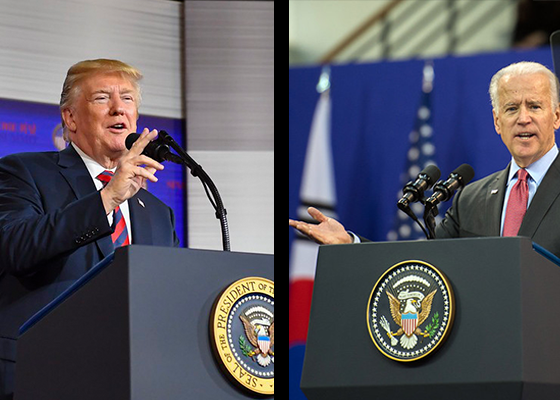The results of the election remain in limbo as litigation continues over the inconsistencies, irregularities, lack of rule-following, and fraud that is said to have occurred during the 2020 election.
Many of these are hard to prove in a court of law, especially when the date for the electoral college to vote, December 14th, 2020, quickly approaches.
Proving the vast amount of fraud that is alleged to have been committed will take a massive investigation into the whole scheme, which will take time, time that doesn’t exist if President Trump is to serve a second term.
However, there is one legal argument that is being made that could toss out hundreds of thousands of votes and swing the election in Trump’s favor.
States all across the union, including Michigan and Georgia, loosened their enforcement of election rules or changed the rules entirely under the guise of responding to the emergent threat of the pandemic. There is one problem, there isn’t an emergency exception that allows officials in these states to violate the Constitution, federal law, or state law. In this case, it is all three.
Election law and who gets to make it is made inherently clear by the Constitution and federal law.
Article 1 Section 4 Clause 1 of the Constitution, known as the Elections clause states, the times, places and manner of holding elections for Senators and Representatives, shall be prescribed in each state by the legislature thereof; but the Congress may at any time by law make or alter such regulations, except as to the places of choosing Senators. Article 2 Section 1 Clause 2 of the Constitution, known as the Electors clause states, Each state shall appoint, in such manner as the Legislature thereof may direct, a number of electors… These clauses give explicit power to Congress and the state legislatures in the respective states. Nowhere does it state that state board of elections officials or governors or secretaries of state can make rules governing elections.
In Smiley, 285 U.S. at 193, a legislature was defined as, “‘the representative body which ma[kes] the laws of the people.’” In this same case at 367, it states that any regulation of congressional or presidential elections, “must be in accordance with the method which the state has prescribed for legislative enactments.”
In Georgia and Michigan, no one involved in loosening the enforcement or plainly changing election law were members of the state legislature and thus any regulation of congressional or presidential elections that do not follow legislative enactments is illegal.
States are free to determine their own legislative process but as Chief Justice Rehnquist wrote in his concurrence in Bush v. Gore “A significant departure from the legislative scheme for appointing Presidential electors presents a federal constitutional question.”
In Michigan, the Secretary of State and the Governor did not allow for partisan election challengers and poll watchers access to determine if only lawful ballots were counted.
In Georgia, on March 6, 2020, the Secretary of State of the State of Georgia, Secretary Raffensperger, and the State Election Board, who administer the state elections entered into a “Compromise and Settlement Agreement and Release” with the Democratic Party of Georgia, Inc., the Democrat Senatorial Campaign Committee, and the Democratic Congressional Campaign Committee, setting forth different standards to be followed by the clerks and registrars in processing absentee ballots in the State of Georgia. Under the Settlement, however, the Administrators agreed to change the statutorily prescribed manner of handling absentee ballots in a manner that is not consistent with the laws promulgated by the Georgia Legislature for elections in this state.
Under this agreement, the Secretary of State would issue an “Official Election Bulletin” to county administrators overriding the statutory procedures enacted by the legislature and prescribed for those officials. These new rules in Georgia were in direct contradiction of the prescribed rules for handling absentee ballots. Non-legislative officials in Georgia changed the rules on absentee ballots allowing them to be counted three weeks before election day when the law passed by the legislature says they need to be counted starting on election day. This is in direct violation of the Constitution.
As Chief Justice Rehnquist wrote in Bush v. Gore a significant departure from the legislative process presents a constitutional question that needs to ultimately be decided by the supreme court. The only remedy is for the Supreme Court to invalidate these illegal absentee results.
The citizens of Georgia and Michigan were deprived of their rights and privileges to contest an election that is secured by the Constitution in direct violation of federal law, specifically 42 U.S.C. Section 1983 and 1988.
Fraud likely took place, but rules were relaxed and changed in direct violation of the constitution and the results of these rule changes are illegal.











